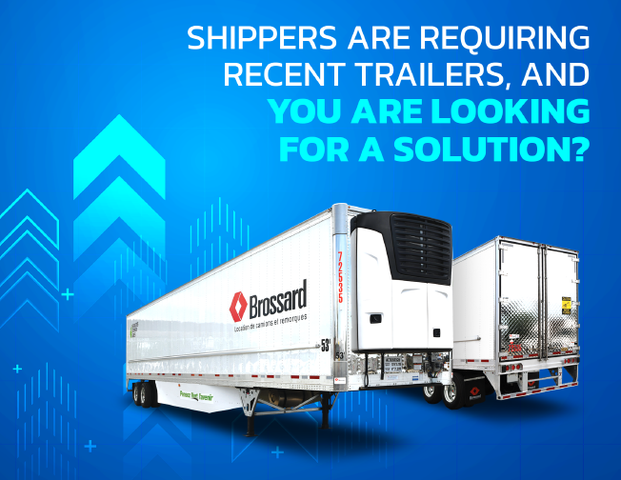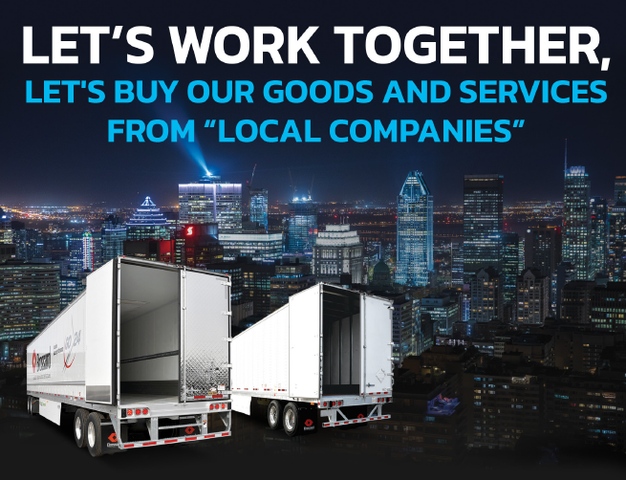NEW 53 foot trailers, refrigerated or dry, latest technology and specifications
ELECTRIC TRUCKS will be an important subject for the next few years

Manufacturers will have to come up with solutions that will use combinations of new technologies for engines, transmissions and aerodynamics in order to answer to the new standards. At the same time, manufacturers are hard at work on alternative energy alternatives, be it natural gas or electric. For shorter routes, for example, zero emission electric trucks will become more and more interesting as a solution to reducing greenhouse gas emissions for heavy trucking fleets.
Electric trucks will have to be specifically adapted for each transport route as the reduced autonomy and payload capacity will be crucial factors.
And contrary to diesels, it will not be simple to fill-up during the work day.
We will have to take the extra weight of an electric truck into consideration (electrics will weigh thousands of pounds more than conventional), also the areas travelled as charging infrastructure as well as time are needed to recharge.
A significant autonomy margin has to be considered to allow for variations in weather, wind, traffic and other variants as well as the fact that the batteries progressively lose efficiency over time. Also important, the autonomy will be reduced during the winter months as the batteries do not like the cold. Batteries need to be heated to a minimal degree in order to maintain power in the cold.
Adequate electric infrastructure and electric installations
that will allow for charging according to operational needs will have to be considered.
Fast charging will take approximately 90 minutes so work schedules and routing will have to thought-out accordingly.
Repetitive fast charging will diminish battery life cycle, so it is better to plan for slow charging as much as possible as long as the operation will permit it.
Charging stations will cost more than $100,000 each and will be able to charge up to 3 units at a time.
The initial electric vehicle cost will be almost 3 times the cost of an equivalent diesel-engine truck.
However, initial grants, the reduction of energy cost compared to fuel and the approximate 33% reduction in maintenance costs coupled with the reduction of emissions will be the factors to consider to make a business case for such technology.
As you can attest, we will be faced with multiple challenges during the next few years as we start this new chapter in the history of trucking.
Brossard Leasing will be an active player. We have vehicles on order and are preparing to be able to charge, maintain and repair them.
More news to come next year on this subject!
Other Articles That May Interest You
Shippers are requiring recent trailers, and you are looking for a solution?
Let's work together




